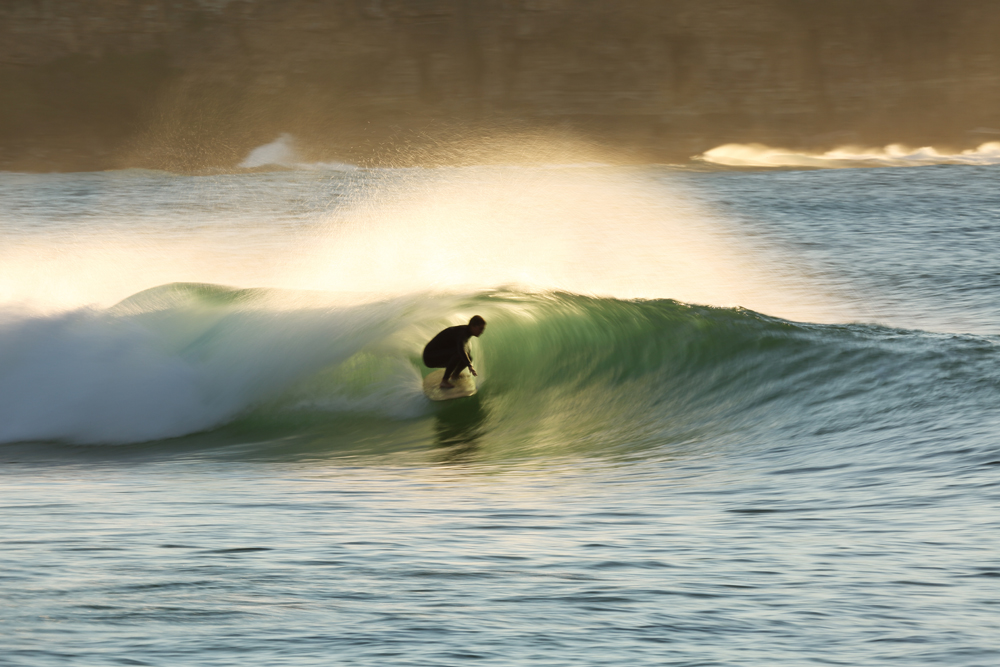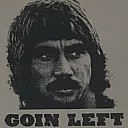Meet the maker: Nathan Oldfield
 Swellnet is a proud sponsor of the inaugural Sydney Surf Film Festival (SSFF), a two week celebration of surfing on celluloid. Over the next fortnight we'll be running interviews with the folk behind all the shortlisted feature films. Up today is one of Australia's favourite surf film makers, Nathan Oldfield.
Swellnet is a proud sponsor of the inaugural Sydney Surf Film Festival (SSFF), a two week celebration of surfing on celluloid. Over the next fortnight we'll be running interviews with the folk behind all the shortlisted feature films. Up today is one of Australia's favourite surf film makers, Nathan Oldfield.
Swellnet: Tell us a bit about yourself.
Nathan Oldfield: My name is Nathan Oldfield and I live in the Northern Rivers Region on the Far North Coast of New South Wales. I’m a husband and a father and a surfer. I’ve been surfing for over thirty years. I like making things like surfboards, songs, poems, photographs and films.
How did you get started in filmmaking and why? Did you study filmmaking formally or are you self-taught?
I grew up surfing, taking photographs and watching surf films, so for me the transition to surf filmmaking was a natural progression. In lots of ways, making films is just a part of who I am as a surfer. It’s just an extension of my surfing life, like making my own surfboards. I never studied filmmaking. I’m just making it up as I go.
How did your film come about?
I have two short films showing in the Sydney Surf Film Festival. Both of them are simple stories featuring good friends Belinda Baggs and Dave Rastovich.
Where do you look for inspiration?
In terms of surf filmmaking, Bruce Brown’s work was an early inspiration, and there were lots of other filmmakers whose films moved me: Paul Witzig, Albert Falzon, Jack McCoy, Sonny Miller, Taylor Steele, Thomas Campbell, Chris Malloy, Scott Soens. But I guess a surfing life was my main inspiration. I feel so blessed and so grateful to have lived a surfing life and I am so passionate about riding waves. My work is an expression of that thankfulness and it is inspired by that passion.
"For me, filmmaking is a pretty organic process. I like to document people: who they are and where they’re at, rather than design my own script and impose that on them."
How do you feel about your work being seen on the big screen?
It’s always a buzz to see your work on the big screen, after watching it on a computer for so long. But then there’s also that natural kind of nervousness about how the film will be received. As a filmmaker, you’re always aware that there’s an audience. So obviously you want to make something that’s interesting and appealing and meaningful, something that will reverberate with the audience. But on the other hand, you also make films for yourself. There has to be that integrity and authenticity. I like making the kinds of films that I like to watch, so I know that my films aren’t for everyone.
What equipment do you use?
I shoot with digital equipment. As an independent filmmaker, I could never afford to shoot film. My films don’t cost much to make. They’re very shoestring: a camera, a tripod, a microphone, a laptop.
What do you think makes a good story? How do you set about translating that onto the screen? What is your starting point?
For me, filmmaking is a pretty organic process. They often grow as I start making them. Sure, I have ideas about what I want my films to say, but there’s no script. I like to document people: who they are and where they’re at, rather than design my own script and impose that on them. I like telling their stories, not my own version of their stories. It’s more of a documentary style of doing things I guess. That’s always been my preference, rather than something that’s staged or scripted. I think over time as a filmmaker you develop your own vision, the how and why you craft a movie, from the cinematography, to the editing, music selection, narrative elements, overall production. There are no rules, as such, I just try to make things from the heart. Hopefully, the resulting work is something that can resonate with the viewer.
How much of the process do you think is creative and how much do you think is technical?
My feeling is that it is both, but that creativity is more important. Like Einstein said: ‘Imagination is more important than knowledge.’
Where do you see the future of surf filmmaking going?
It’s becoming increasingly harder for independent surf filmmakers to produce work and make a decent profit. I think we’ll see less independent feature-length surf films for this reason. But it doesn’t mean the independent surf film is dead. I think there will always be artists out there with the passion and creative drive to make meaningful contributions to the genre. I hope so, because they are the kind of surf films I look forward to seeing.
What piece of advice do you wish you’d been given when starting out as a filmmaker?
Back everything up. I learnt that lesson the hard way when I was three-quarters of the way through making my first film and my computer crashed. Ouch!
For dates and times of all screenings visit the SSFF website.


Comments
...and first class he is. Australia has some wonderful film makers. Nathan Oldfield the film maker is only outdone by Nathan Oldfield the man.
A gent we are lucky to have among us.